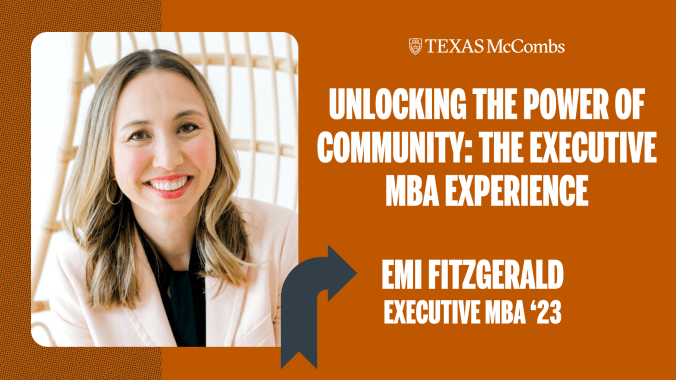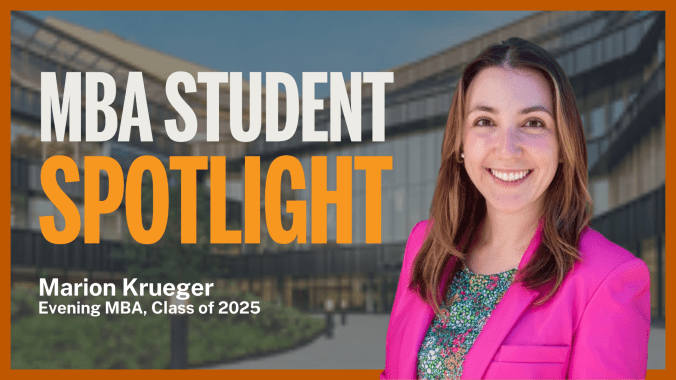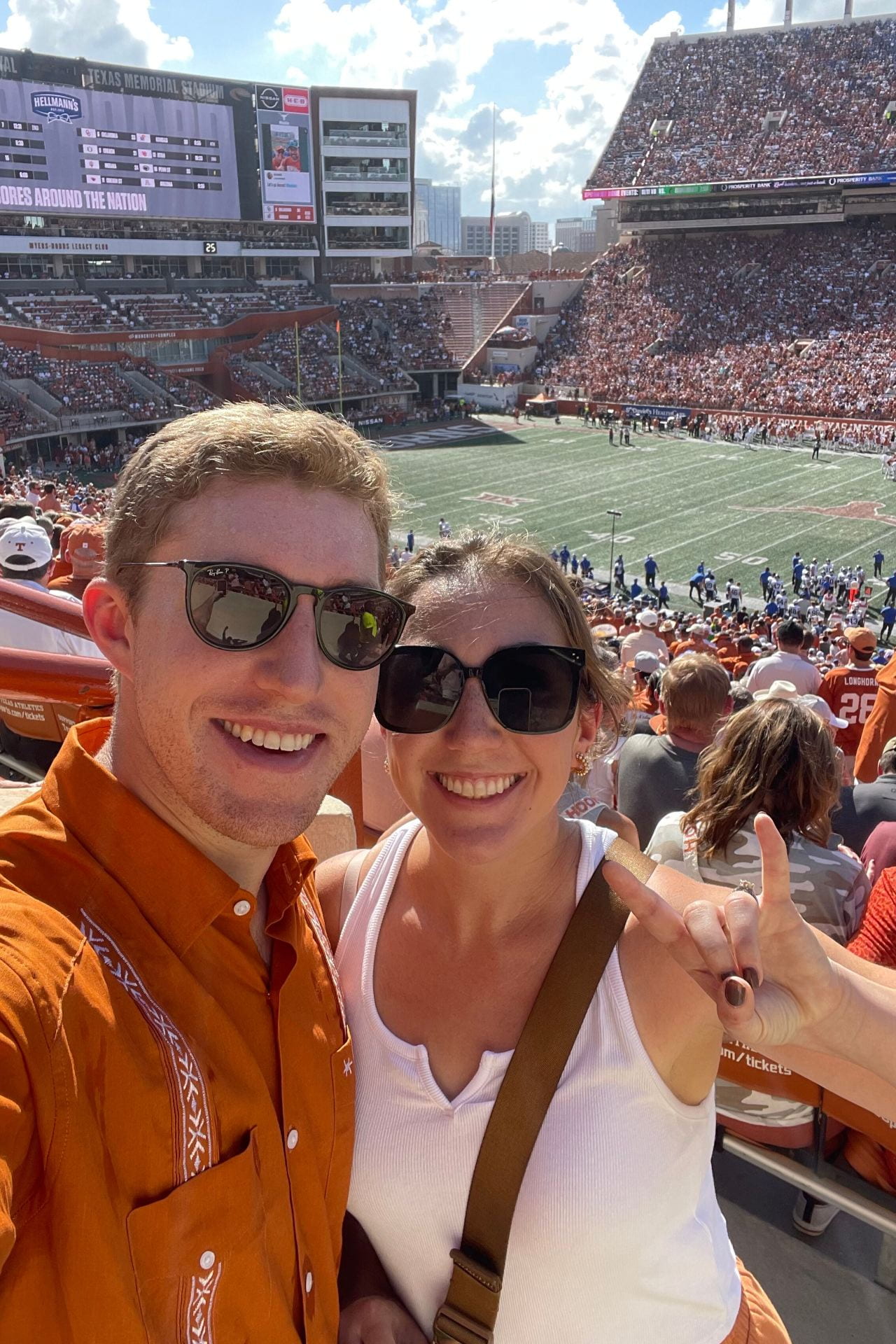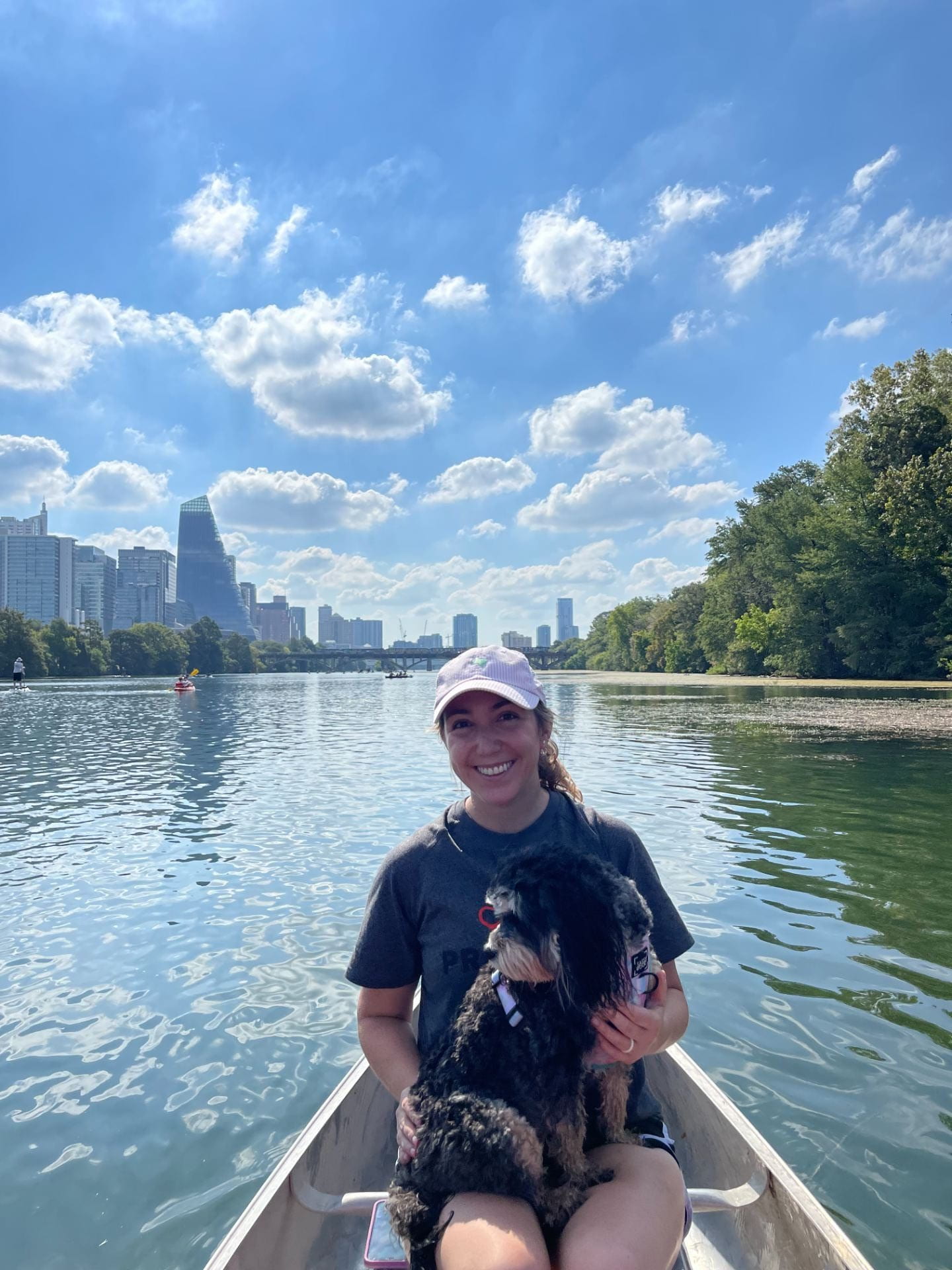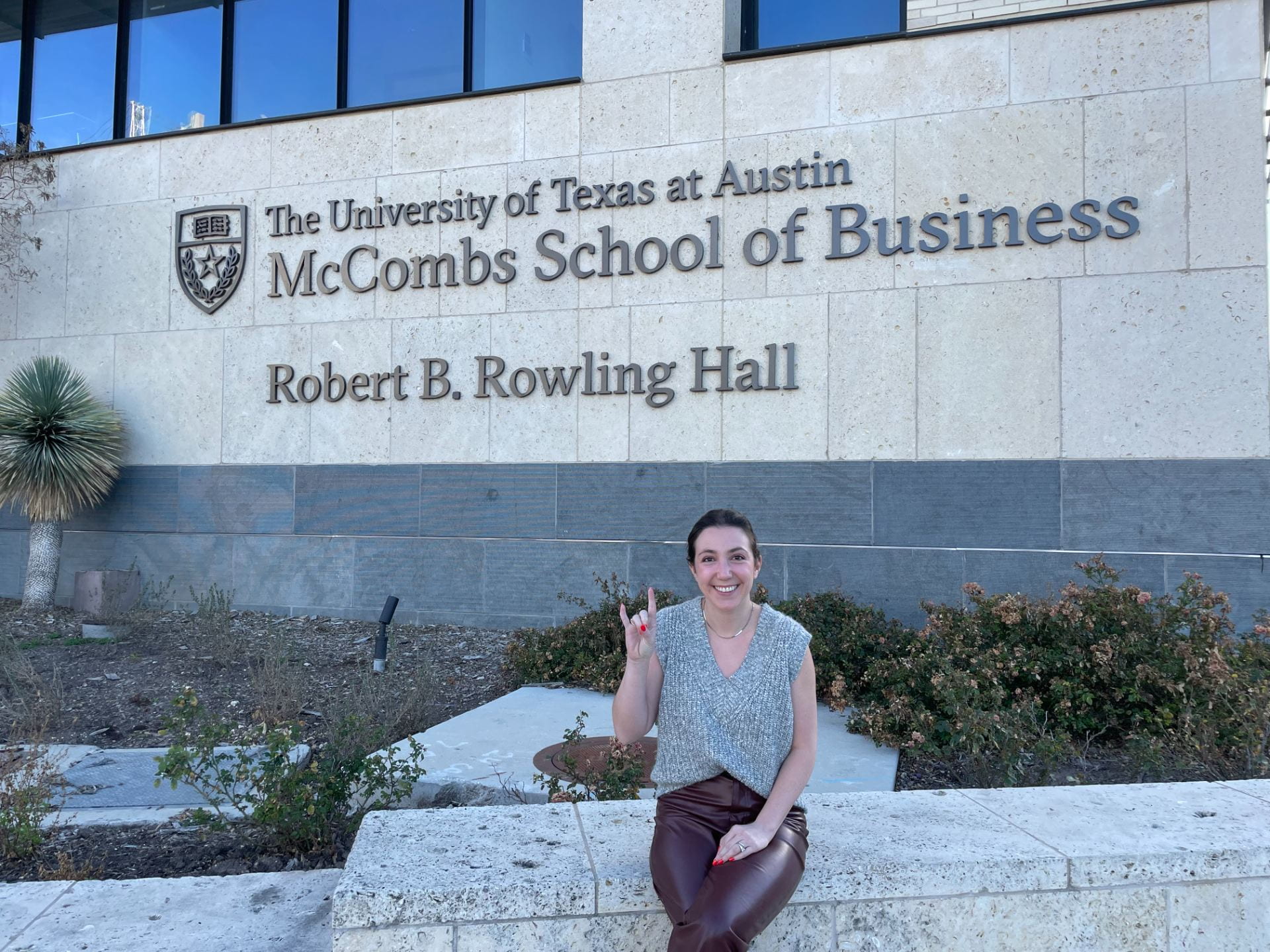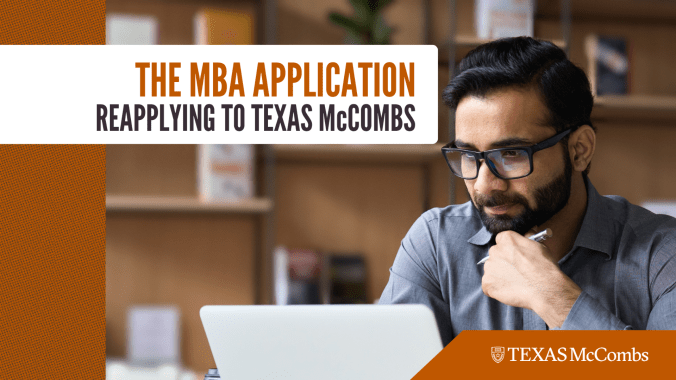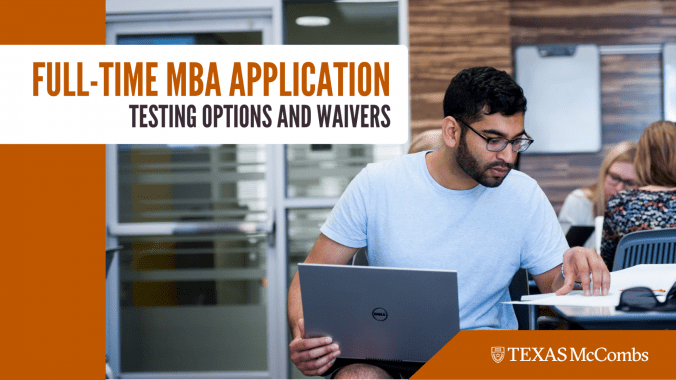Pursuing an MBA is more than just gaining a degree; it’s about the relationships you build, the experiences you share, and the community you become a part of. At Texas McCombs, our Executive MBA program offers not only top-tier education but also a supportive and collaborative culture. Whether you’re a seasoned executive or an up-and-coming leader, you’ll find yourself surrounded by individuals who are not only eager to share their knowledge but also genuinely invested in your success. Here, competition takes a back seat to cooperation as students come together to tackle real-world challenges and opportunities.
Collaborative Culture
One of the defining characteristics of our Executive MBA program is its collaborative nature, unlike traditional MBA programs that may foster competition. Our students come from diverse professional backgrounds and industries, and they bring with them a wealth of knowledge and experience. Instead of competing against one another, our students work together, leveraging each other’s strengths to achieve mutual success. Whether it’s tackling group projects, participating in case studies, or engaging in classroom discussions, our students thrive in an environment where collaboration is not only encouraged but celebrated.
 Emiko FitzGerald, Executive MBA Class of 2023, made strong connections while at McCombs. Recognized as one of Poets & Quants’ Best & Brightest in 2023, Emi actively contributed to the graduate community as the Communications Chair for Graduate Women in Business, while also serving on the McCombs Ambassador Committee. Additionally, she excelled as a McCombs+ Leadership Fellow and engaged in a high-impact Go-To-Market Consulting Project with Stripe. Emi’s dedication extended beyond campus as she served as a mentor in the Global Sports Mentoring Program.
Emiko FitzGerald, Executive MBA Class of 2023, made strong connections while at McCombs. Recognized as one of Poets & Quants’ Best & Brightest in 2023, Emi actively contributed to the graduate community as the Communications Chair for Graduate Women in Business, while also serving on the McCombs Ambassador Committee. Additionally, she excelled as a McCombs+ Leadership Fellow and engaged in a high-impact Go-To-Market Consulting Project with Stripe. Emi’s dedication extended beyond campus as she served as a mentor in the Global Sports Mentoring Program.
“One of the main reasons I chose the McCombs Executive MBA program was for the diverse cohort in geography, backgrounds and networking. It is as advertised and my professional network is exponentially stronger because of it. In the Executive MBA program, students come from different backgrounds and different strengths.Those stronger in finance helped those who didn’t have as much experience in finance classes (like me). But when it came time for marketing classes, I could tap into my strengths and experiences to help students with less familiarity in the subject. Everyone helped each other become stronger in the subject matter rather than compete.”
Supportive Environment
Another key aspect of the Texas McCombs Executive MBA experience is the unwavering support provided by our faculty, staff, and fellow students. From day one, you’ll find yourself surrounded by a community of individuals who are invested in your success. Whether it’s offering mentorship, providing resources, or simply lending an empathetic ear, our community is here to support you every step of the way. No matter the challenges you may face, you can count on your Texas McCombs family to have your back.
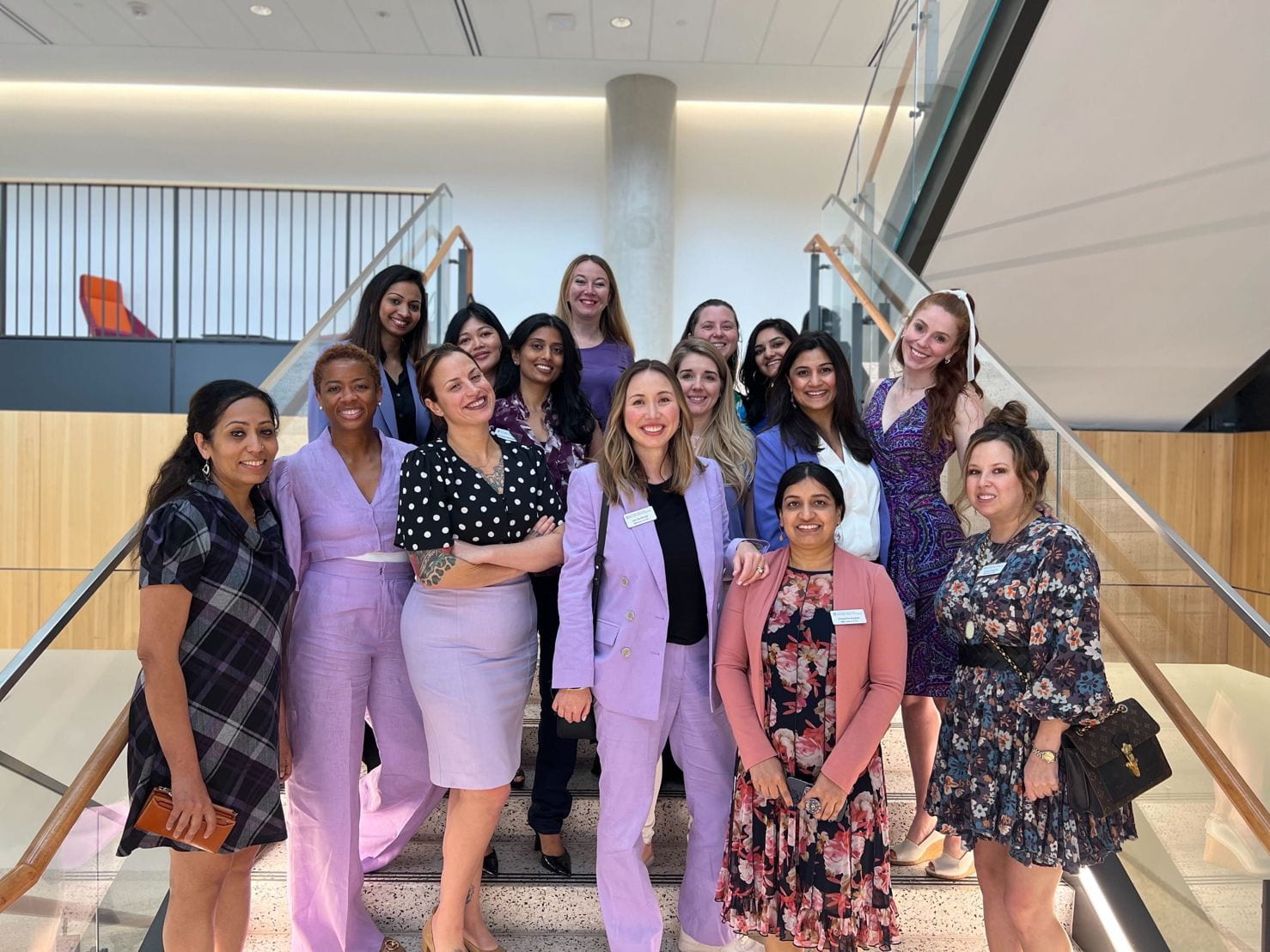
Emi (center) and her classmates and co-organizers of the first Women’s Empowerment Summit for Executive MBA.
A group of women in my cohort wanted to do more for our Graduate Women in Business chapter and celebration of International Women’s Day. The program staff worked alongside us to create a GWiB Women’s Empowerment Summit by helping us secure rooms, drum up publicity, bring speakers to campus and partner with other McCombs departments. They recognized the important role of women in business and were creative in their resources and time to support us. It was a defining moment for me in my McCombs journey!
Lifelong Friendships
Perhaps one of the most rewarding aspects of the Executive MBA journey is the lifelong friendships you’ll forge along the way. As you navigate through the program together, sharing triumphs and overcoming obstacles, you’ll develop bonds that extend far beyond the classroom. These connections aren’t just limited to your time in the program; they continue to grow and flourish long after graduation. Whether you’re celebrating career milestones, seeking advice, or simply catching up over coffee, your Texas McCombs classmates will always be there, ready to support and uplift you.
In the year since graduation, I’ve kept up with a number of colleagues through family meet ups, rounds of golf, discussions about new business ideas and phone calls. One colleague was recently promoted and building out his marketing department, so another marketing-focused classmate and I have been a sounding board for him. We are cheering each other on from various corners of society.
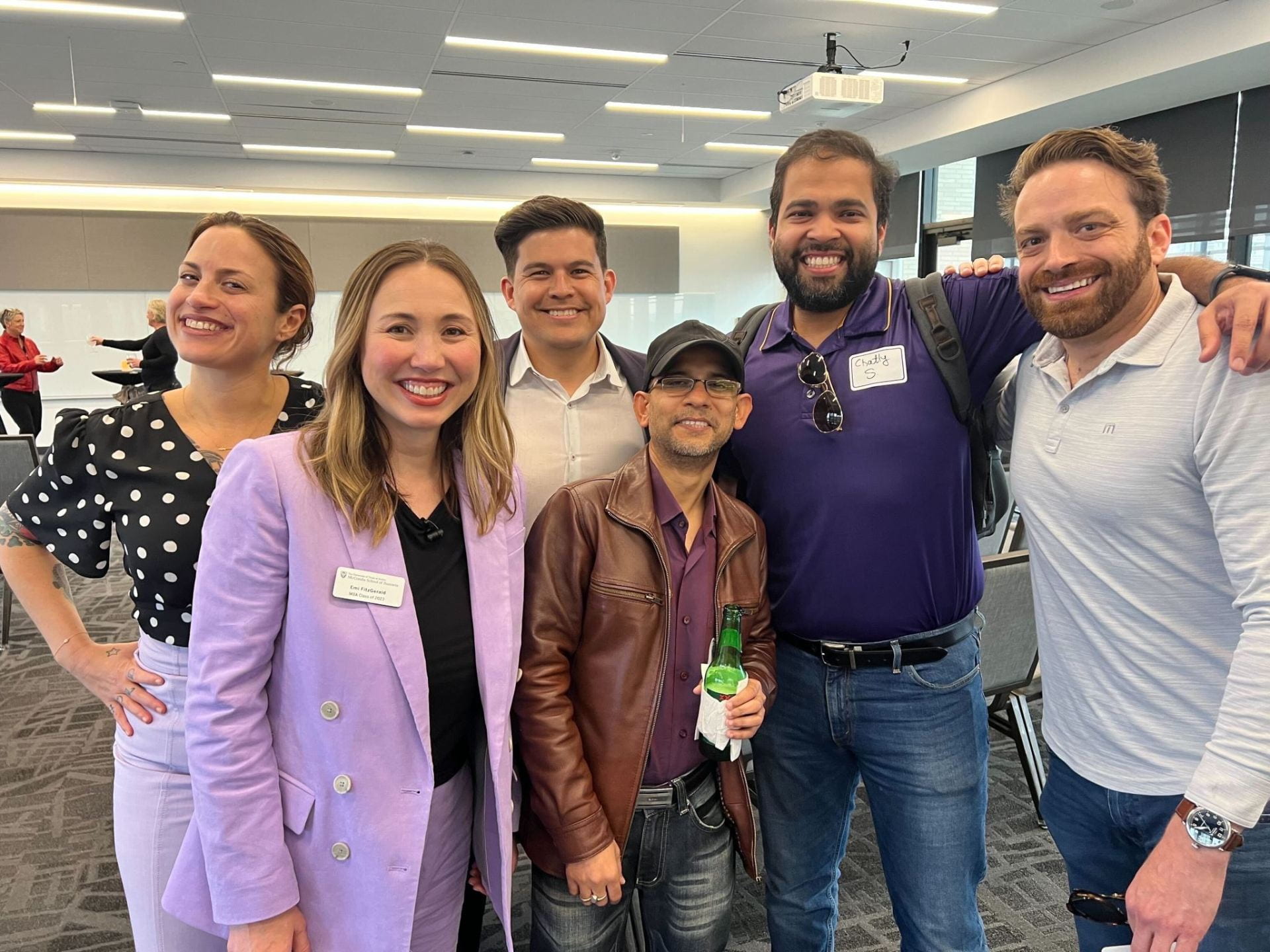
Emi and some of her classmates from the Executive MBA Class of 2023 and 2024.
An Added Bonus
While pursuing your Executive MBA at Texas McCombs, you’re not just investing in your education and career advancement; you’re also gaining access to a vibrant and supportive community that will enrich your life in countless ways. From collaborative projects to lifelong friendships, the value of our community extends far beyond the confines of the classroom. So if you’re considering taking the next step in your career, why not choose a program that not only offers academic excellence but also fosters a culture of collaboration, support, and lifelong connections? Join us at Texas McCombs, where your success is our top priority, and where the power of community is truly transformative.
Visit Texas McCombs MBA to learn more about our programs and upcoming events or take a peek into student life on Instagram. For any inquiries, don’t hesitate to reach out to the MBA Admissions Team. We look forward to connecting with you on your journey to success.
Hook ‘Em!
